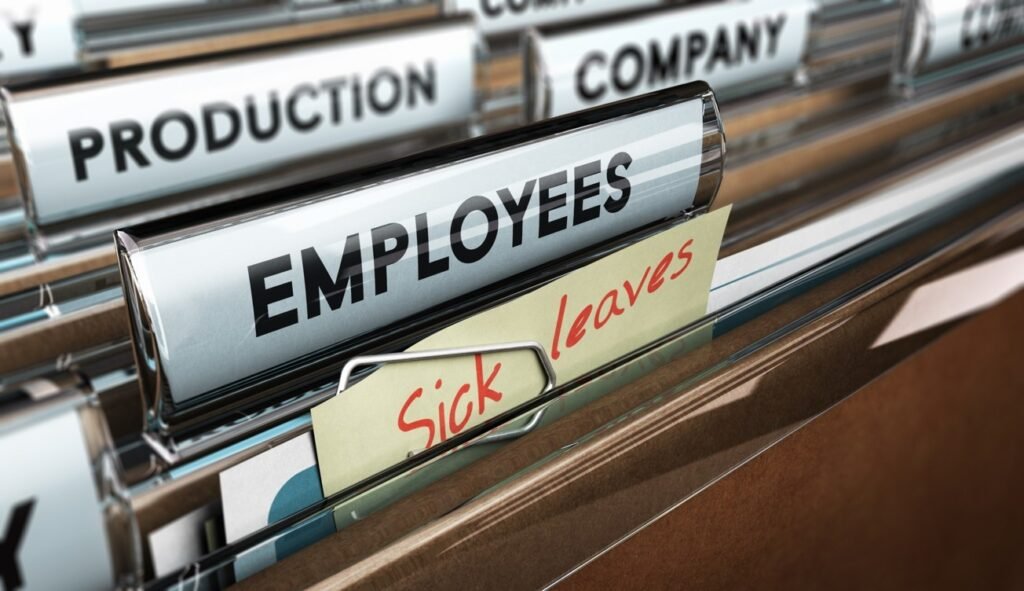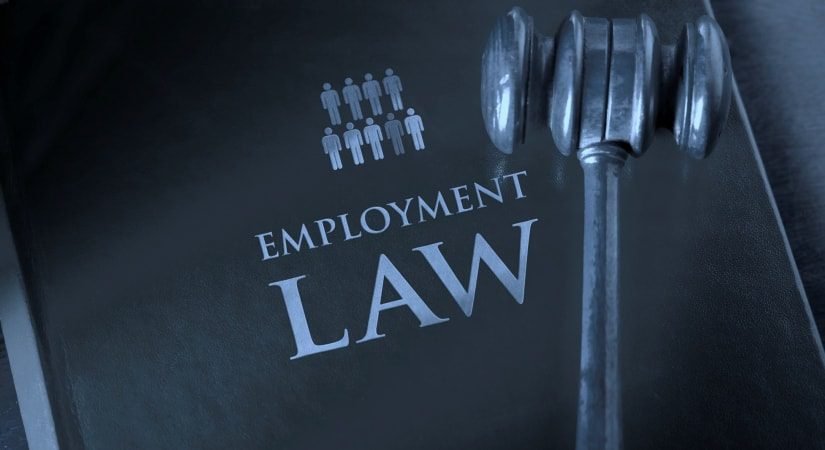Managing Sickness Absence – our top 5 tips
In this month’s HR Insight, we take a closer look at sickness absence. This can often feel like a grey area for many employers as there are a number of areas in Employment Law that can catch you out. Here we explore 5 practical steps you should take to support your employees, manage sickness absence effectively and safeguard your business from complaints or challenges:

1. A well-defined policy
A well-defined sickness policy should specify organisational definitions of:
- long-term sickness (usually over four weeks)
- short-term sickness (usually sporadic days and absences up to four weeks).
It should also outline:
- notification of sickness rules
- absence triggers
- absence management processes
- adjustments for those living with disabilities or long-term health conditions.
Such a policy is essential for the smooth management of staff absences. Not only does it set out the expectations of employees, it’s also a guide for line managers for dealing with sickness absences. Consistency across the organisation ensures staff are dealt with fairly, reducing the likelihood of complaints or challenges.

2. The importance of return-to-work meetings
Return to work meetings are a valuable tool in absence management. They provide an opportunity to find out if the employee is fit to return to work, remind employees of absence rules and investigate any ongoing health issues or disabilities requiring workplace adjustments.
They also have a deterrent effect on employees thinking of “pulling a sickie”. According to a recent CIPD report, statistically, the first Monday in February is the day when most workers call in sick: this is called “national sickie day”, with some claiming that more than 375,000 British workers called in sick on the day prior to the pandemic. Employers can use return to work meetings to get to the bottom of the absence, questioning how it arose, what was done to relieve it and whether or not it might come back. Conducting these for absences will make those going off sick for a non-genuine reason think twice, for fear of being found out and subject to disciplinary action.

3. Special rules for holiday and sickness
The courts have interpreted the law in relation to sickness and holidays in a way that could catch unprepared employers out.
Right of carry-over
From 1 January 2024, new statutory rules on carry-over of holiday apply, regardless of when the leave year starts. Regulations which amend the Working Time Regulations 1998 (WTR 1998) provide that leave years starting before and after 1 April 2024 are covered. Employers should review any or all of the following to check that they are compliant: contractual clauses on holiday, holidays policy, payroll and record-keeping, communications to staff in respect of holiday. While much of what is being codified in statute will be familiar from EU law, many employees will not have been aware of their rights until now.
Unable to take annual leave due to maternity/family leave or sick leave
A worker is entitled to carry over 5.6 weeks’ annual leave into the following leave year where they have been unable to take all or part of their annual leave:
- As a result of taking statutory leave (essentially maternity and other family-related leave) in any leave year.
A worker is entitled to carry over only 4 weeks of annual leave (regulation 13 leave):
- As a result of taking sick leave in any leave year.
In cases where leave is carried over as a result of sick leave, annual leave must be taken by end of the period of 18 months from the end of the leave year in which the entitlement originally arose.
Employer’s failures may lead to indefinite carry-over
Regulation 13 leave (4 weeks’ leave) may also be carried over, into the next and any subsequent leave year, as a result of an employer’s failure with regard to annual leave, in particular where an employer fails to:
- Recognise a worker’s right to annual leave (this covers cases where an employer misclassifies status or where they refuse to recognise a worker’s right).
- Give the worker reasonable opportunity to take the leave or encourage them to do so
- Inform the worker that any leave not taken by the end of the leave year which cannot be carried forward will be lost.
Employers should make clear the ‘use it or lose it’ rule in policies and also issue regular reminders to employees that their holiday entitlement will be lost if they do not use it before the end of the holiday year. It remains to be seen what constitutes ‘encouraging’ employees to take leave under the new statutory definition, in particular how far an employer is expected to go in this regard.

4. Sickness and disciplinary proceedings
What happens to disciplinary proceedings when an employee gets sick? It can be a stressful time and can lead to ill-health. The question employers are faced with is: can the proceedings continue? Sometimes, getting them out of the way is beneficial, but in others, illness can prevent employees from fully participating.
In Oise v Spring and Co Solicitors Ltd (Employment Tribunal (ET)), a solicitor was invited to a disciplinary hearing to discuss allegations of gross misconduct but was signed off sick for two weeks. The employer, not believing the sickness was genuine, held the meeting in his absence and ultimately dismissed him. The ET found the employer had acted “unreasonably” in doing this and upheld the claim for unfair dismissal on the grounds that it was procedurally unfair — even though the reason itself for dismissal was fair. Recognising this, compensation was reduced by 50% due to the employee’s conduct.
Clearly, employers should tread carefully in these cases and only push ahead where they have checked the employee is fit to participate.

5. Working elsewhere whilst off sick
Finally, we finish with a concern for many.
Being sick from one role does not mean that the worker cannot perform another: this is why amended duties should be explored during sickness. For example, an employee engaged in physical work, who has broken their leg, probably can’t perform that role during recovery. However, they would be fine to do another role. If their employer can’t offer that, they may look elsewhere, or continue to do a second role they already have where they can do the work. However, their contract of employment may prevent this, so this would need to be checked carefully, especially if this alternative work makes them unavailable for their main role. This alternative work, unless for their employer, should not be undertaken during their usual working hours.
Conclusion
Managing sickness absences can be complicated, as there is a lot for employers to consider. Taking the time to manage things properly is well worth it to avoid challenges in the future.
For further expert advice and support with managing sickness absence, contact The HR Team.






